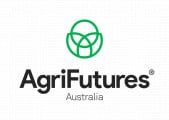AgriFutures Australia

For carbon markets to work effectively, we need a soil carbon auditing method that maximises grower profitability and gives purchasers confidence that credits translate to actual carbon sequestration on the ground. To maximise profitability for growers we must better understand the trade-off between the cost and the potential return on investment of the various auditing methods available. The cheapest option available to measure soil carbon stock may not provide the greatest net return for carbon farmers. Cheaper options commonly have lower confidence, which means you may not be credited for increasing your carbon levels as the level of evidence is not strong. This project aims to discover which of the four most common methods delivers the most efficient ratio of cost versus confidence in measuring soil carbon stock change. The four methods are laboratory analysis, proximal sensing, remote sensing, and process-based modelling. The outcome will compare their relative cost and uncertainty to inform the carbon market under which scenarios each is applicable, and which will maximise carbon farming profitability.

-crop-850x675.png)
Have questions?
Find answers to our most frequently asked questions on research projects, commercial opportunities, organisations and more.
Still have questions or have feedback on the site? Please get in touch by completing our enquiry form.